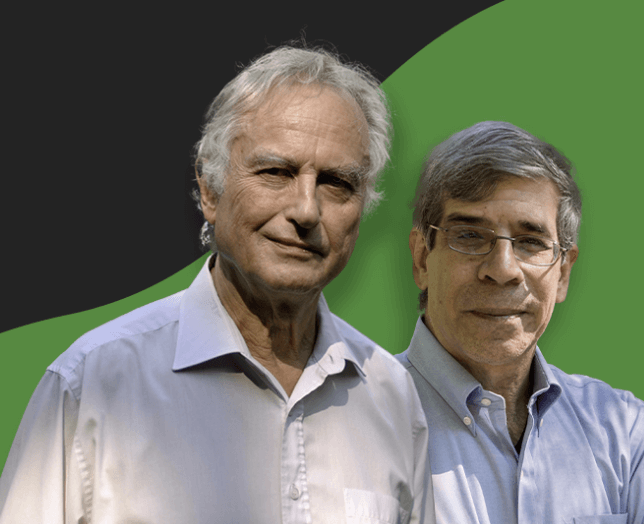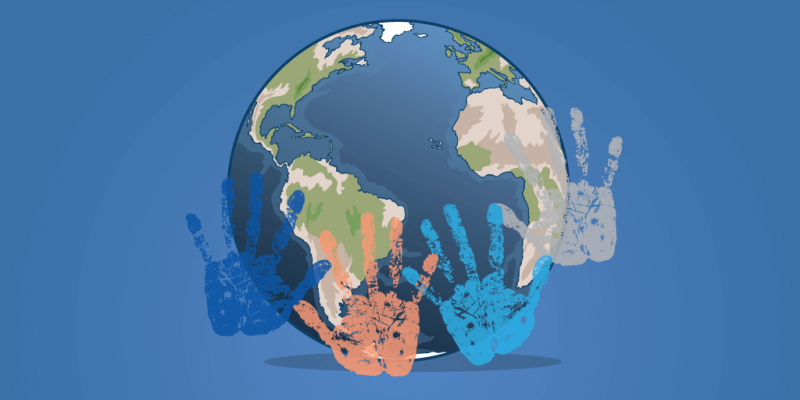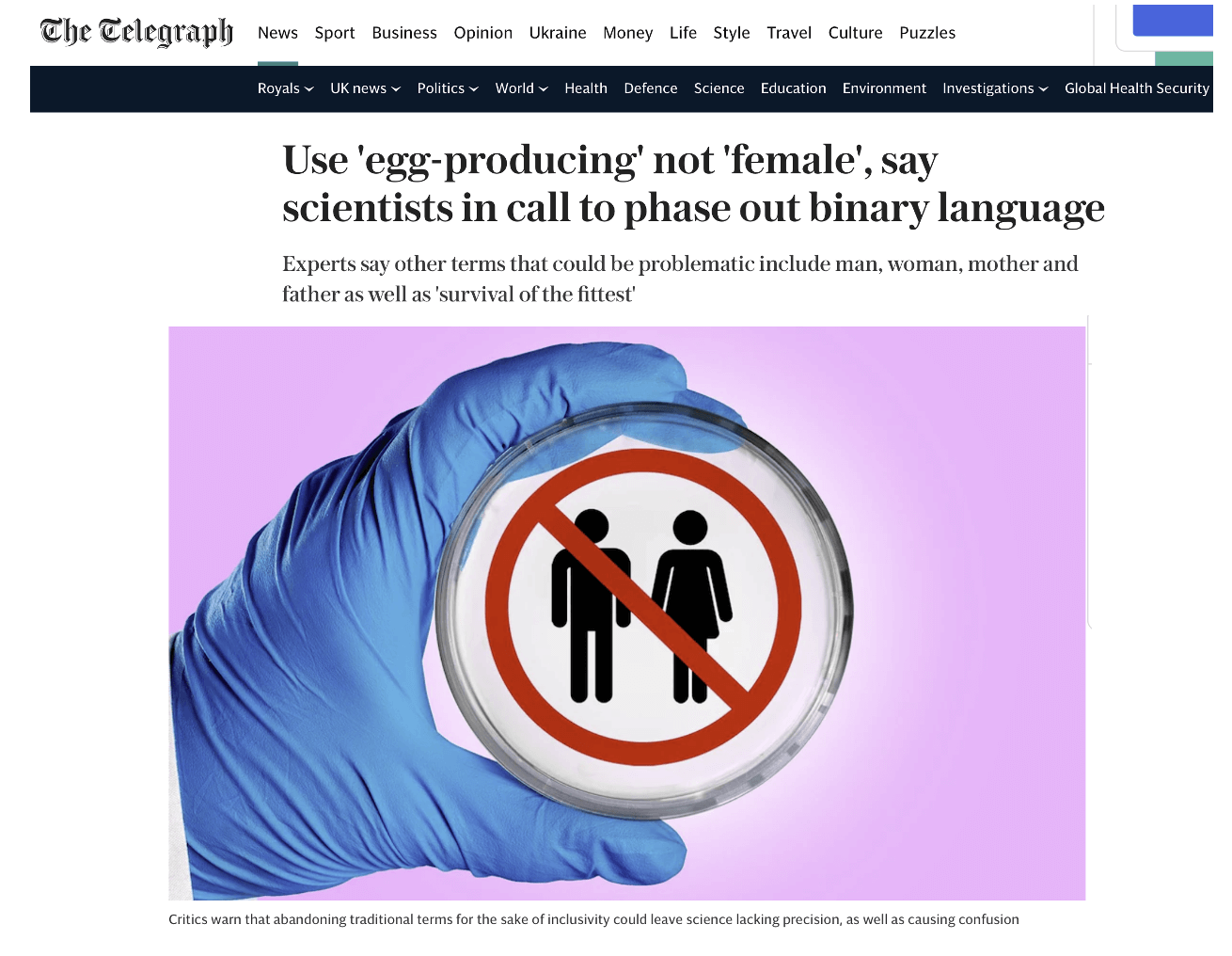Science, biology in particular, is rife with racism and other egregious forms of prejudice and bigotry. That’s the belief now held by many on the ideological left after the callous murder of George Floyd by a Minneapolis police officer in 2020 galvanized a wider fervor for social justice and an examination of what the new movement called ‘endemic racism’.
No less than Nature, one of the world’s premier science magazines, has endorsed this belief. In a special issue in 2022 entitled “Racism: Overcoming science’s toxic legacy,” the editors wrote:
For centuries, science has built a legacy of excluding people of colour and those from other historically marginalized groups from the scientific enterprise. Institutions and scientists have used research to underpin discriminatory thinking, and have prioritized research outputs that ignore and further disadvantage marginalized people.
It’s critically important to examine the role all “isms” have shaped aspects of life, and science should not be an exemption. But many people, even those on the left, are wondering whether anti-racism has become a dogma in its own right, complete with its own language.

Biology and racism
A recent example of progressive scientists’ demand for change — and of claims that biologists have a duty to “grapple with the exclusionary history” of their disciple — is found in a well-publicized, peer reviewed article in Cell, ‘Championing inclusive terminology in ecology and evolution’, published in February. According to its authors, the very language of biology perpetuates and reinforces the injustices and inequalities of wider society.
Much of Western science is rooted in colonialism, white supremacy, and patriarchy and these power structures continue to permeate our scientific culture.
[The effort to promote inclusive language is] particularly important for redressing the ongoing marginalization of many groups in EEB [ecology and evolutionary biology], including Black, Indigenous, and people of color (BIPOC) communities; lesbian, gay, bisexual, transgender, queer and/or questioning, intersex, and asexual (LGBTQIA+) communities; and disabled communities; among others.
Not surprisingly, given its politicized tone, this critique of biology’s supposed exclusionary language has itself provoked strong counter-criticism, and not just from the political right. Evolutionary biologist Richard Dawkins, for example, dismisses it as blatant ‘woke’ virtue signaling, deserving little more than “contemptuous ridicule”.

Fellow biologist Jerry Coyne goes further, suggesting that the article (and others like it) are simply an attempt “to achieve power: power to foist your ideology upon others by controlling language, and the power to determine what’s good or bad”.
If the likes of Dawkins and Coyne are correct, the ‘Championing inclusive terminology’ article and others like it commit the very crime they claim to oppose: using language coercively against a wider diversity of beliefs and opinions — or (in the piece’s own progressive terminology) enforcing “violence” against those “others” outside a “privileged” in-group.
The furor surrounding this article is yet another skirmish in the interminable Culture Wars. Yet there are at least two strong reasons not to dismiss it with mocking scorn, as Dawkins suggests. The first is that the article does not demonstrably help the underrepresented communities that it purports to champion. The second reason is perhaps more significant: ideological beliefs represented by this and similar articles are, at the extreme, inimical to the very function and future of science.
Mind your language
How might EEB’s “exclusionary” terminology “reinforce oppressive systems, discriminatory tropes, and offensive terms”? According to the authors of ‘Championing inclusive terminology,’ “anti-trans language has been used to describe male snakes that engage in female mimicry, and phrases such as ‘sneaky mating strategy’ can normalize problematic male sexual behavior”.
Think about these claims for a moment. Are we to believe that the ecological term “sneaking” (used to refer to males that avoid other dominant males in competition for females) has the real world effect of normalizing unwanted male sexual behavior in human beings? That using such phrases in relation to snakes (or other species adopting a similar practice) might have a detrimental social effect — say in justifying the predatory sexual behavior of some men as somehow ‘normal’ or ‘natural’? Or that questions of human gender identity in any way relate to female mimicry by male snakes?
Those who see “anti-trans language” in discussion of non-human animal behavior are manufacturing offense. Where is the evidence that this terminology causes distress among the cited groups (in this case, presumably, members of the LGBTQIA+ community)? Or that it dissuades people from these groups from engaging with ecology or evolutionary biology?
In short, this example does not highlight “exclusionary” language; rather, it demonstrates how easy it is to claim offense if you are determined to be offended. Much the same can be said about other “offensive” or “problematic” usage identified by the authors of “Championing inclusive terminology”.
The dirty two dozen
Few, if any, of the top 24 terms included in the article’s “repository for harmful terminology in EEB” back up the lurid description of ecology and evolutionary biology as steeped in intolerance and bigotry. “Blind/double-blind/plant blindness” are unacceptable as ‘blind’ is a “disability metaphor”. “Citizen science” is a no-no because it is “harmful to non-citizens who are excluded by that language”.
Science is apparently replete with words that would offend Blacks. Consider the word “noose”, which is uncommonly used by ecologists or biologists, and never in an offensive way.
But no matter to the authors; “noose” should be avoided because it is a “term associated with anti-Black violence and lynching”. (The preferred alternative is “lasso”). Is it really the case that rare use of “noose” in science would trigger “people of color” (and Black Americans especially) and turn them against biology?
There are other words labeled racially insensitive, even when used in long-established, scientifically bland, ways. Use of “master” (as in ‘master variable’ or ‘master equation’) is verboten as it “perpetuates harmful stereotypes and connotations to the enslavement of people of color and normalizes language implicated with slavery and enslaved people”. Any mention of ‘slave’ and/or ‘master’ in relation to “slave-making ants” is also taboo as it “normalizes slavery and colonoliasm [sic] as a natural phenomonen [sic] in the wild, which if [sic] harmful to cultures and people of color subjugated to these practices and does not represent the animal behavior accurately”.
Where is the evidence that these terms have such a dire effect or any substantial impact? How many words would need to be excised from science or our broad vocabulary if we targeted every case in which some group or another deemed it offensive?
When words really do offend
There is at least one term on the list that Jerry Coyne believes might justify substitution because it so clearly targets one minority. “The renaming of the Gypsy moth to ‘spongy moth’” is a “salubrious change,” Coyne suggests, “as ‘Gypsy’ is now considered a pejorative to be replaced with ‘Roma’”. Last year, that was in fact done by edict from the Entomological Society.
Coyne and others have a point as Gypsy is associated with a particularly destructive insect. That said, the term ‘Gypsy’ is not universally considered a pejorative, nor is it an ethnic slur in many parts of the world (even among all Roma); gypsy also has positive connotations of free-spirited, wild, romantic, much travelled, and the like (possibly why it was coined to describe a wide-ranging species of ant in 2006, before the term ‘gypsy ant’ was also dropped). Coyne himself concludes: “I don’t mind the change, but nor do I see it making the study of lepidoptera more inclusive.”
The list of supposedly offensive words includes numerous inconsistencies and contradictions. Terms such as “alien/non-native/exotic/invasive” (in relation to introduced species) are denounced as “xenophobic, anti-immigrant, and militaristic”, with “colonization/colonizer” similarly decried “as harmful and triggering for Indigenous people that have been subjugated to colonialism, racism, and genocide and use of the term describes normalizes it as natural phenomonen [sic] rather than a destructive one with human context”.
Yet isn’t the very point of progressive demands for ‘decolonization’ across society to highlight the destructiveness of colonization/colonizers (using these very words)? And isn’t the point of describing invasive or pest species in these terms — rather than the suggested alternative, “nuisance species” — to emphasize the destructiveness of these organisms on fragile ‘native’ eco-systems?
Nonetheless, many in the science establishment are hurrying to embrace these new terms. Nature followed up its declaration on racism was a series on “decolonizing” science, in part by revising the current vocabulary.
Ideology not science?
But there are even more serious contradictions on popular lists of harmful terminology — those that relate to the politically fraught issue of sex and gender.
One of the few areas where there should be little disagreement about ‘problematic’ terminology is with the too-often blurred distinction between ‘sex’ and ‘gender’. As many people have pointed out, “Gender, a social construct, is often conflated with sex”. Its advice is to avoid using (socially constructed) “gender” and instead simply use (biological) “sex” instead; it also suggests dropping the “highly anthropomorphic” distinction “man/woman” in favor of “male/female”.
All well and good — until a few lines later “male/female” is itself highlighted as an offensive usage, one “used to reinforce societally-imposed ideas of a sex binary, emphasising cis-normative and hetero-normative views”. The preferred ‘inclusive’ alternative is “sperm-producing/egg-producing or XY/XX individual” (which are themselves binary distinctions, but that’s by the by). That would be elegant phrasing when used in novels, police reports, athletic competitions, and everyday discourse.
What the discrediting of biological terms misses is a basic knowledge of science. The “sex binary” is not a societally-imposed idea, it is a biological reality across all animals and even many plants. Anomalies are an exception to the blueprint of life. They should be treated with sensitivity, but not at the sacrifice of basic science. Ironically, it is the denial of biological sex that is an imposition of societal beliefs. This is not supporting science in the name of inclusivity; rather it is foisting upon science an exclusive, subjective and currently fashionable ideology.
“Mother/father” comes in for the same treatment, dismissed as “perpetuat[ing] a non-universal heteronormative and cisnormative view of the parenting and birthing process”. Presumably, describing a bear cub and its ‘mother’, say, or a single dominant sealion ‘fathering’ numerous pups reinforces an unacceptable view of parenting and birthing. This seems to be projecting a (non-scientific) human political belief onto non-human animals, and then re-interpreting it to score ideological points. Even if you accept the ideology associated with terms such as ‘heteronormativity/cisnormativity’, it is anthropomorphizing (another no-no) to apply this to animals. (I warned you that the reasoning of the ‘word police’ is often convoluted.)
Also note how the authors of ‘Championing inclusive terminology’ often do not follow their own advice. They discuss “problematic male sexual behavior” using the suspect term “male”. According to their own proscription, this should preferably be “problematic sperm-donor behavior”. This is farcical.
What is not farcical is how this kind of censorious language, should it ever be widely adopted (or enforced) could seriously undermine gender equality in the real human world. For example, it is not human sperm donors who sexually assault human egg producers; it is men who harm women. If we reduce human males and females — that is, men and women — to mere sperm producers or egg donors, then we devalue efforts to address gender discrimination and violence, overwhelming committed by men. So much for the article’s claimed sensitivity and commitment to equality and justice.
Surely a great number of human parents (aka mothers and fathers) would object to being described as their offspring’s respective egg and sperm donors. Yet, why is not considered an offense by those demanding a radical overhaul of our vocabulary? Answer: only certain privileged groups are to be shielded from linguistic “violence”.
Taking on ideologues
Why go to such lengths to refute an article that while well-meaning is so contradictory that it crosses over to the ridiculous and farcical? Why not simply do as Dawkins suggests and wave it away as beneath contempt?
This movement, and this piece in particular, does not further its stated aim of “redressing the ongoing marginalization of many groups” in ecology and evolutionary biology. By creating imagined grievances or trumping up marginal ones rather than encouraging critical thinking and greater minority participation in science, it is short-changing under-represented groups. It gives power to those who are quick to accuse others of prejudice. By stoking fear of being accused of bigotry —most of us are cowed into tokenistic ‘playing the game’ wordsmithing. Most of all, this devalues genuine examples of social injustice epitomized by the brutal murder of George Floyd.
While established elder statesmen of science like Dawkins and Coyne can challenge the insidious, corrosive effect of this ‘fashionable nonsense’ without damage to their reputation or livelihood, this is not the case with rest of us lower down the hierarchy who are silenced by the dread of damaging their reputations and careers. An apt historical analogy is McCarthyism, where “shrieking denunciations and fear-mongering created a climate of fear and suspicion” among American intellectuals in the 1950s. It’s how “the fraudulent pseudoscientific concept” of Lysenkoism during the same era perverted “intellectually independent science and … hugely damaged biology” the USSR.
It is sometimes said that science advances funeral by funeral — that newer theories are adopted as those holding older views die off. With due respect to 81-year-old Richard Dawkins and 73-year-old Jerry Coyne, newer views aren’t always more scientifically grounded; sometimes they are just newer. What will happen when those with ‘old-fashioned’ views on the objectivity of science pass away and a new generation of ideologically-inspired professors takes over?
The supporters of anti-racism make important points: framing, and sensitivity to the social implications of language, matter. But everyone, including and especially those who argue for revisions in science terminology, should be careful not to cast this process as a conflict of left vs right or “harmful terminology” vs “inclusive terminology”. This discussion is not a tussle between the racist and the enlightened. Science, our hopes for a more inclusive society and fewer marginalized people will all suffer if this is allowed to happen.
Patrick Whittle is a freelance writer with a particular interest in the social and political implications of modern biological science. Follow him on his website patrickmichaelwhittle.com or on Twitter @raft_rat



































